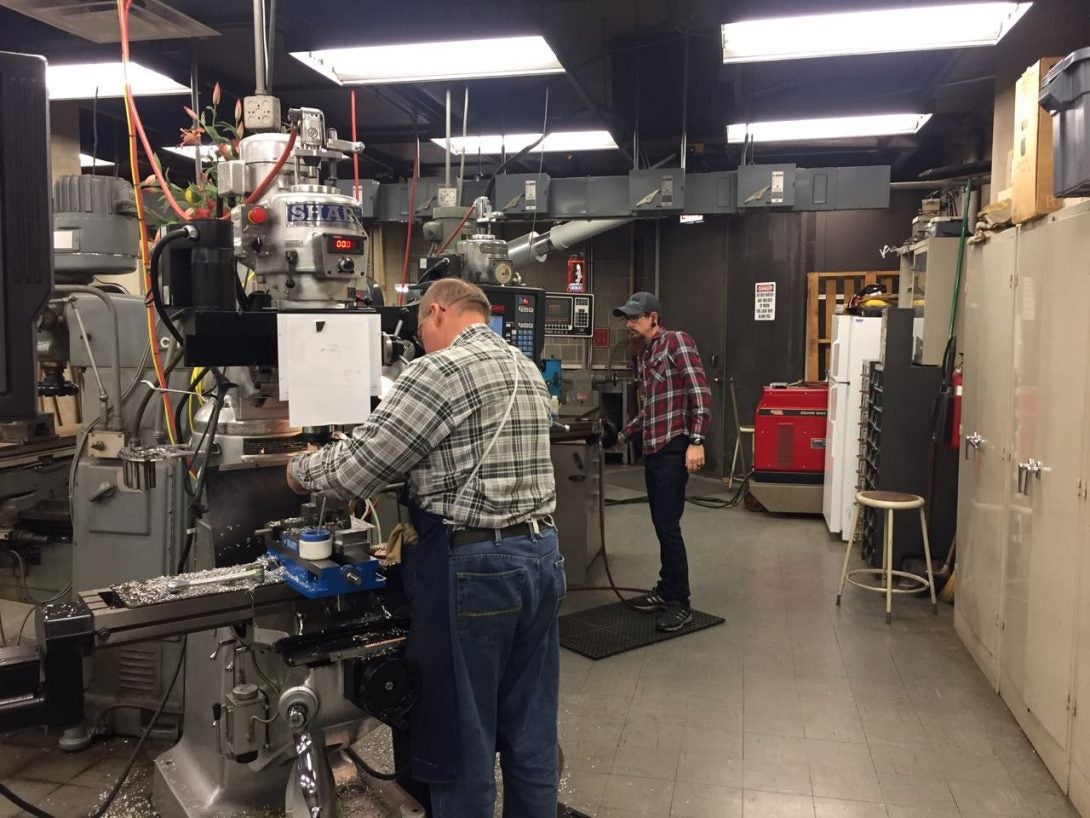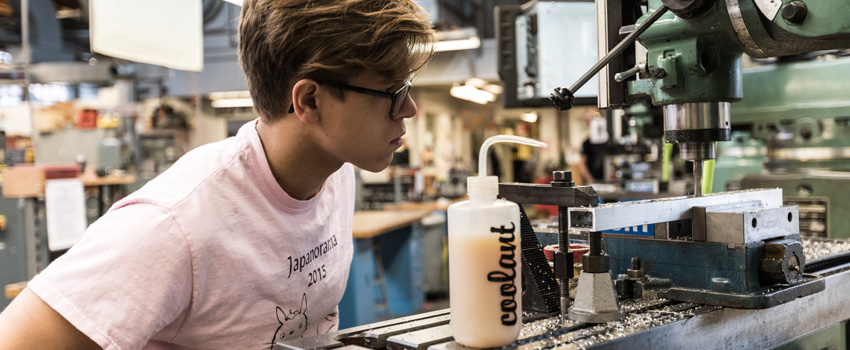
A job shop is a type of manufacturing process where one-of-a-kind or custom products are produced. It involves a series of operations, each with a different processing time, and the order in which these operations are performed can vary depending on the product being made. Job shops are commonly used for industries such as aerospace, automotive, and electronics, where each product requires different components and processes.
There are various types of job shops, each with its own unique characteristics and advantages. In this blog post, we will explore the different types of job shops, their benefits, how to choose the right one, common challenges, and the future of job shops.
Benefits of Using a Job Shop

- Flexibility – Job shops offer flexibility in terms of production. As each product is unique, the production process can be easily changed to accommodate different designs and specifications. This allows for faster response times to customer requests and changes in demand.
- Customization – Job shops are ideal for producing custom-made products. This allows businesses to cater to specific customer needs and preferences, resulting in higher customer satisfaction.
- Cost-effective – For small-scale or low-volume production, job shops can be more cost-effective compared to mass production methods. This is because job shops do not require specialized equipment and can use existing machinery for different products.
- Versatility – Job shops can handle a wide range of products, from simple to complex, making them suitable for a variety of industries. This versatility also enables job shops to adapt to changing market trends and demands.
- Quality control – As each product has a unique production process, job shops have a high level of quality control. Each step is carefully monitored, ensuring that the final product meets all specifications and standards.
How to Choose the Right Job Shop

Choosing the right job shop for your business can be a daunting task. With so many options available, it can be challenging to determine which one will best suit your needs. Here are some factors to consider when choosing a job shop:
- Industry experience – It is essential to choose a job shop that has experience in your industry. This ensures that they understand the specific requirements and standards for your products.
- Equipment and technology – The type of equipment and technology used by a job shop can greatly impact the quality and efficiency of their production process. Choose a job shop that utilizes modern equipment and technology to ensure top-notch results.
- Capacity and lead time – Consider the capacity and lead time of the job shop. You need to ensure that they have enough resources and can meet your deadlines without compromising on quality.
- Location – The location of the job shop may also play a significant role in your decision. If you require frequent visits to the facility or have a tight delivery schedule, it may be more practical to choose a job shop that is closer to your business.
- Quality control systems – Ask about the quality control systems and processes in place at the job shop. A reputable job shop should have strict quality control measures in place to ensure consistently high-quality products.
Getting Started with a Job Shop

Once you have chosen a job shop, it is essential to establish a good working relationship with them. Here are some tips to help you get started:
- Clearly define your requirements – It is crucial to communicate your product specifications, requirements, and expectations clearly to the job shop. This will help avoid any misunderstandings and ensure that the end product meets your standards.
- Provide necessary information – Provide the job shop with all the necessary information, such as technical drawings, materials, and quantities, to avoid delays and errors in the production process.
- Regular communication – Maintain regular communication with the job shop to stay updated on the progress of your order, address any concerns, and make any necessary changes.
- Consider a trial run – Before starting full-scale production, consider doing a trial run with the job shop to ensure that their processes meet your standards and expectations.
Common Challenges of Job Shops
Running a job shop can be challenging due to its unique characteristics. Here are some common challenges faced by job shop owners and managers:
- Managing resources – As each product requires different processes and resources, managing these resources can be complex and time-consuming. Proper planning and scheduling are crucial to ensure efficiency and avoid delays.
- Scheduling conflicts – With multiple products being produced simultaneously, scheduling conflicts can arise, resulting in delays and backlogs. This is where good communication and efficient management play a crucial role.
- Quality control – Maintaining quality control in a job shop can be challenging as each product has a unique production process. A robust quality control system needs to be in place to ensure consistency and minimize defects.
- Changing customer demands – Job shops need to be flexible and adapt to changing customer demands. This can be challenging when dealing with custom-made products, as changes may require reworking and rescheduling of orders.
- Employee training – As each product may require different processes, employee training is essential. Keeping employees up-to-date on new processes and techniques can be costly and time-consuming.
Trends in Job Shops
The job shop industry is constantly evolving, with new technologies and trends emerging. Here are some of the latest trends in job shops:
- Automation – Advances in automation technology have enabled job shops to improve efficiency and reduce costs. Automated systems can handle repetitive tasks, freeing up employees to focus on more complex operations.
- 3D printing – 3D printing has revolutionized the production process for many industries, including job shops. It allows for the creation of complex and customized parts quickly and efficiently.
- Lean manufacturing – Lean principles, such as minimizing waste and optimizing processes, are becoming increasingly popular in job shops. This helps improve efficiency and reduce costs.
- Data analytics – With the use of data analytics, job shops can gain insights into their production processes and identify areas for improvement. This leads to better decision-making and increased efficiency.
- Cloud-based solutions – Many job shops are now using cloud-based solutions to manage their operations. This allows for easy access to information, improved communication, and better collaboration between employees and customers.
The Future of Job Shops
The future of job shops is bright, with continued advancements in technology and manufacturing processes. Here are some predictions for the future of job shops:
- Integration of AI – Artificial intelligence (AI) is expected to play a significant role in the job shop industry. It can help with scheduling, forecasting, and quality control, leading to increased efficiency and productivity.
- Industry 4.0 – The fourth industrial revolution, also known as Industry 4.0, is expected to have a major impact on job shops. It involves the integration of advanced technologies such as AI, automation, and the Internet of Things (IoT) to create smart factories.
- Sustainable practices – As businesses become more environmentally conscious, job shops will need to adopt sustainable practices to remain competitive. This may include reducing waste, utilizing renewable energy sources, and implementing green technologies in their processes.
- Virtual reality – The use of virtual reality (VR) in job shops is predicted to increase in the future. VR can be used for employee training, product design, and process optimization, leading to improved efficiency and reduced costs.
Job Shop Management
Managing a job shop requires efficient planning, organization, and communication. Here are some tips for effectively managing a job shop:
- Establish a system – Develop a system for managing orders, resources, and schedules. This will help ensure consistency and avoid errors or delays.
- Utilize technology – There are many software solutions available specifically for job shop management. These can help with scheduling, inventory tracking, and data analysis, making management more efficient.
- Regular communication – Communication is crucial in a job shop environment. Ensure that all employees and customers are kept updated on orders, changes, and any issues that may arise.
- Continuously improve processes – Job shops should constantly assess and improve their processes to increase efficiency, reduce costs, and maintain quality standards.
Job Shop Scheduling
Job shop scheduling involves determining the order in which operations will be performed and allocating resources accordingly. Here are some techniques used in job shop scheduling:
- First come, first served (FCFS) – In this method, the jobs are processed in the order they arrive. While simple, FCFS does not take into account the processing times of each operation, leading to inefficiencies.
- Shortest processing time (SPT) – This method schedules jobs based on their processing times, with the shortest jobs being completed first. This can lead to shorter lead times and increased productivity, but it may not consider other factors such as deadlines or resource availability.
- Earliest due date (EDD) – Jobs are scheduled based on their due dates in this method, with those with earlier deadlines taking priority. However, EDD may result in longer lead times for jobs with longer processing times.
- Critical ratio (CR) – The critical ratio method takes into account both processing time and due date. It calculates the ratio of remaining time until the due date to the processing time, and jobs with the lowest ratio are scheduled first.
Job Shop Quality Control
Quality control is crucial in job shops to ensure that each product meets the required specifications and standards. Here are some essential aspects of job shop quality control:
- Inspection – Each product must be inspected at various stages of the production process to identify any defects or deviations from the specifications.
- Corrective action – If any defects or issues are identified, corrective action must be taken immediately to prevent further errors and ensure the final product meets the required standards.
- Quality control systems – Job shops should have robust quality control systems in place to ensure consistency and minimize defects. This may include regular audits, process controls, and employee training.
- Document control – Proper documentation of all processes and procedures is essential for maintaining quality control. This allows for easy tracking and identification of any issues that may arise.
Conclusion
Job shops play a crucial role in industries where customized products and frequent design changes are common. They offer flexibility, customization, and cost-effectiveness, making them a popular choice for businesses. With advancements in technology and manufacturing processes, the future looks bright for job shops. By understanding the different types of job shops, their benefits, and how to effectively manage them, businesses can make informed decisions and successfully partner with job shops to meet their production needs.
Also visit for more blogs at : IGanony The Anonymous Social Network







